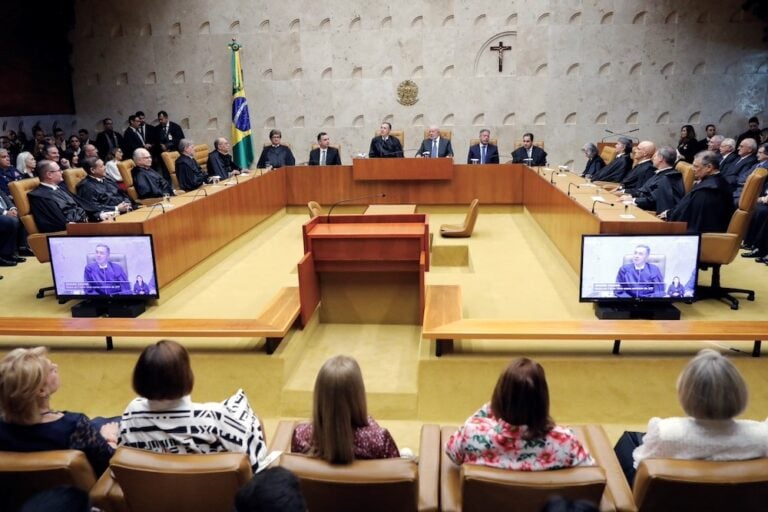Journalism student Emílio Moreno da Silva Neto was sued for "moral damages" after a third party posted a comment on his blog criticising the director of a local private school.
(ABRAJI/IFEX) – Blogger and journalism student Emílio Moreno da Silva Neto, 33, was ordered by a Ceará state judge to pay R$16,000 (approx. US$9,200) in damages due to a comment posted on his blog.
On 21 November 2009, Neto, who resides in Fortaleza, received notice that property would be seized to cover the sum, which, with indexation, amounts to almost R$20,700 (approx. US$11,900). Neto, however, has said, “I have no property, I am a journalism student and live with my parents.”
The case began in March, when the student posted a comment on his blog about the lack of coverage the local media gave to a fight between two students at the Colégio Santa Cecília, a traditional private school in Fortaleza.
An anonymous reader then posted a comment on the blog insulting the director of the school, the nun Eulália Maria Wanderley de Lima, and criticising her performance in dealing with the conflict between the students. This led the nun to initiate a lawsuit for “moral damages” against the blogger.
A decision in the case was delayed since De Lima did not attend the first four hearings and always justified her absence. At the fifth hearing, the nun was present, but Neto was absent and failed to present his arguments. “I got confused with the dates,” the student explained.
According to the news website G1, Neto has also missed the deadline for appealing the decision. The student has changed lawyers and now plans to try to have the court’s decision annulled or change the amount of the damages awarded.
According to De Lima’s lawyer, Helder Nascimento, filing a lawsuit was the only alternative possible. He claims that the day after the publication of the comment, his office asked Neto to delete it and hand over information about the person who wrote it. According to the lawyer, however, “The comment was deleted only after 16 days had passed.”
Neto, on the other hand, claims he deleted the comment as soon as he was approached by the lawyer in May, about two months after it was posted. “I remember it like it was yesterday. There were three calls within a week. By the time of the second call, the comment was already gone,” the blogger said.
Neto says that right after the first telephone call, he contacted the journalist’s syndicate in Ceará to ask for advice regarding whether he should or should not hand over information about the person responsible for the comment.
“I tried to reason in every moment. I thought it was better not to expose the nun or myself, but I had no answer regarding any possibility of retraction,” Neto said.
Nascimento, however, insists that the blogger resisted in deleting the comment. The lawyer said, “Due to the initial refusal, there was damage to Eulália’s image over a period of 16 days.”
Neto claims to have handed over information regarding the name and e-mail address of the person responsible for the comment, but he later found out that the information was fake.
The student’s view is that bloggers in Brazil are the “victims of a breech of justice” that makes it possible for them to be held responsible for comments posted on their blogs. “There is no specific legislation for the Internet. The sentence was handed down convicting the blogger,” he said.
The lawyer disagrees. In his opinion, the case of Neto need not be seen as a precedent. “In this specific situation, there was disrespect on the part of the blogger, causing damage to Ms. Eulália. This doesn’t mean, as is being said on many blogs, that each blogger would be legally responsible for all comments on a blog. Neto’s delay (in deleting the comment) made him responsible.”
In Brazil there is still is no specific legislation dealing with content posted on the Internet. “Since we do not have appropriate legislation, it can be a problem for freedom of expression. We may end up creating a fear for people to express themselves. Since this occurred, I moderate the site and am, on one hand, fearful of censoring someone, and on the other hand, fearful of facing charges,” Neto said.


